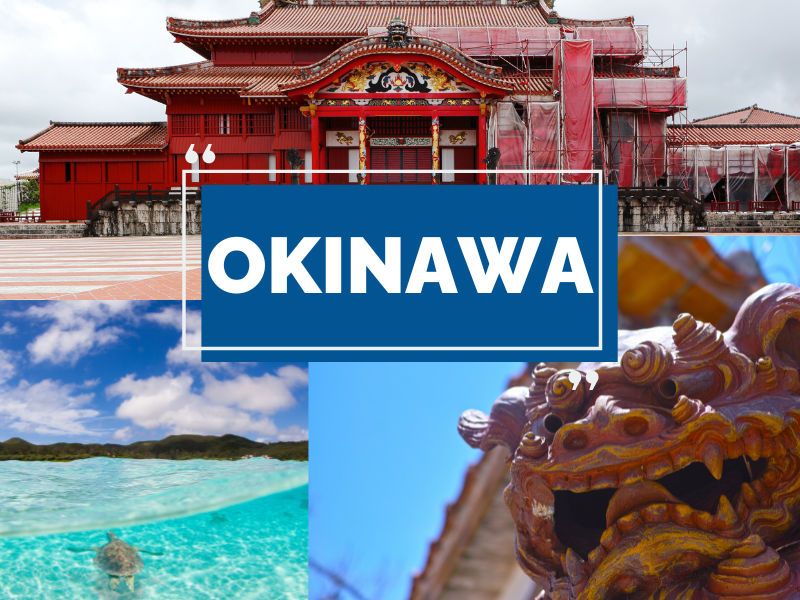
This is the first article of five on Blue Zones. What are Blue Zones? They are regions of the world where people tend to live longer, and healthier lives compared to the global average. These areas have attracted significant attention from researchers and health enthusiasts, as they offer insights into the factors contributing to healthy aging and longevity as well as to overall well-being. Among the five prominent Blue Zones discovered so far, the Okinawa Blue Zone stands out for its unique Asian based cultural and lifestyle elements that contribute to the exceptional health and longevity of its residents.
Okinawa, a Japanese prefecture consisting of several islands in the Pacific Ocean, has gained recognition for its high concentration of centenarians – individuals who have reached the age of 100 or more. This phenomenon has sparked interest in understanding the lifestyle practices that may contribute to the long lives of Okinawans. Our team discovered this first Blue Zone in 1975, almost half a century ago. One of the key factors that we have found to be important is the traditional Okinawan diet, which is rich in plant-based foods such as vegetables, whole grains, legumes, and soy products. This diet is not only nutrient-dense but also low in calories, contributing to lower rates of obesity and related health issues. We have also found that social connections play a very important role in the Okinawan culture. The concept of “moai” highlights the significance of forming strong social support networks and we will focus upon this Okinawan institution in greater detail in later blogs and newsletters.
The close-knit communities and cultural institutions such as the moai provide emotional and practical assistance throughout life, fostering a sense of belonging and reducing feelings of isolation. This emphasis on social bonds contributes to lower levels of stress and mental health issues, which are often associated with longer lifespans. We have found that physical activity is ingrained in the daily lives of older Okinawans, with regular, low-intensity movements forming an essential part of their routines. Gardening, walking, and other forms of natural exercise help maintain their mobility and overall health. Moreover, Okinawa is also known as the birthplace of martial arts such as karate which attracts many adherents from the world over. Additionally, Okinawa’s subtropical climate encourages outdoor activities and an active lifestyle, which supports cardiovascular health and overall vitality. Cultural practices and values also play a role in the Okinawan Blue Zone. For example, we have observed that respect for elders is deeply rooted in their society, leading to intergenerational connections and a strong sense of purpose (called ikigai in Japan) among older individuals. This sense of purpose, along with a positive outlook on life, contributes to their mental and emotional well-being, also potentially enhancing longevity.
Therefore, it goes without saying that the Okinawa Blue Zone offers valuable insights into many of the components that contribute to long, healthy lives. The combination of a plant-based diet, active lifestyle, strong social networks, and cultural values creates an environment that fosters physical, mental, and emotional well-being. By studying and adopting these elements into our own lives, we can potentially improve our own chances of living longer, healthier, and more fulfilling lives.
The next Blue Zone to be discussed will be Sardinia, another island culture, however, one that lies off the Southern coast of Italy and represents a unique version of Mediterranean culture. For more information on the Okinawa Blue Zone we refer you to our book, “The Okinawa Program” which highlights the unique (as well as in some sense “universal”) lifestyle habits of the Okinawans, which have led to their exceptional longevity. Please refer to the link below.

